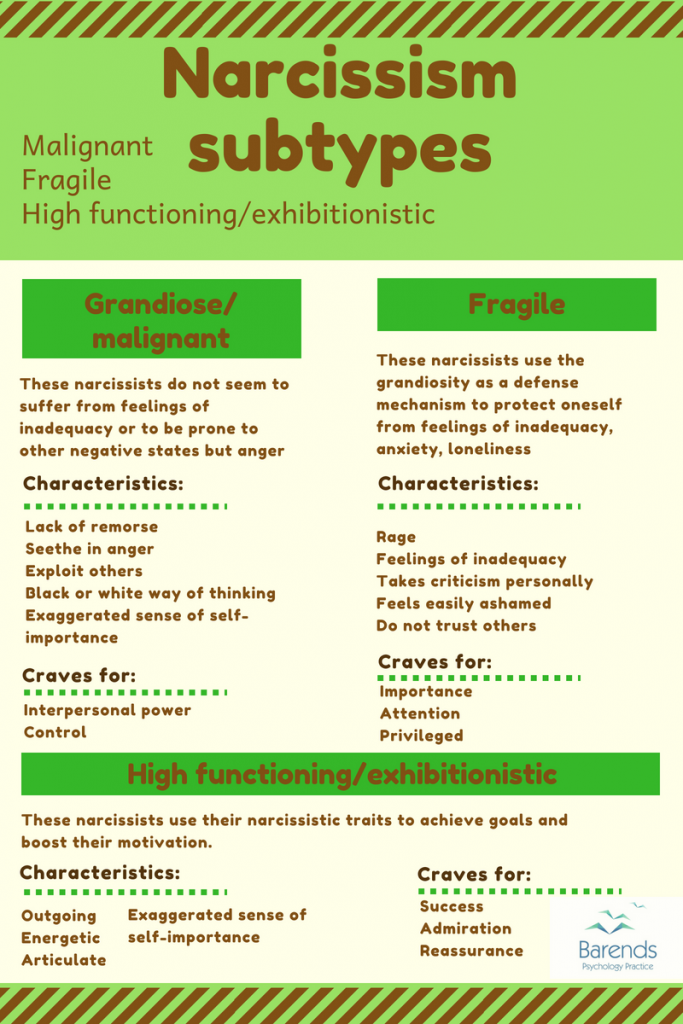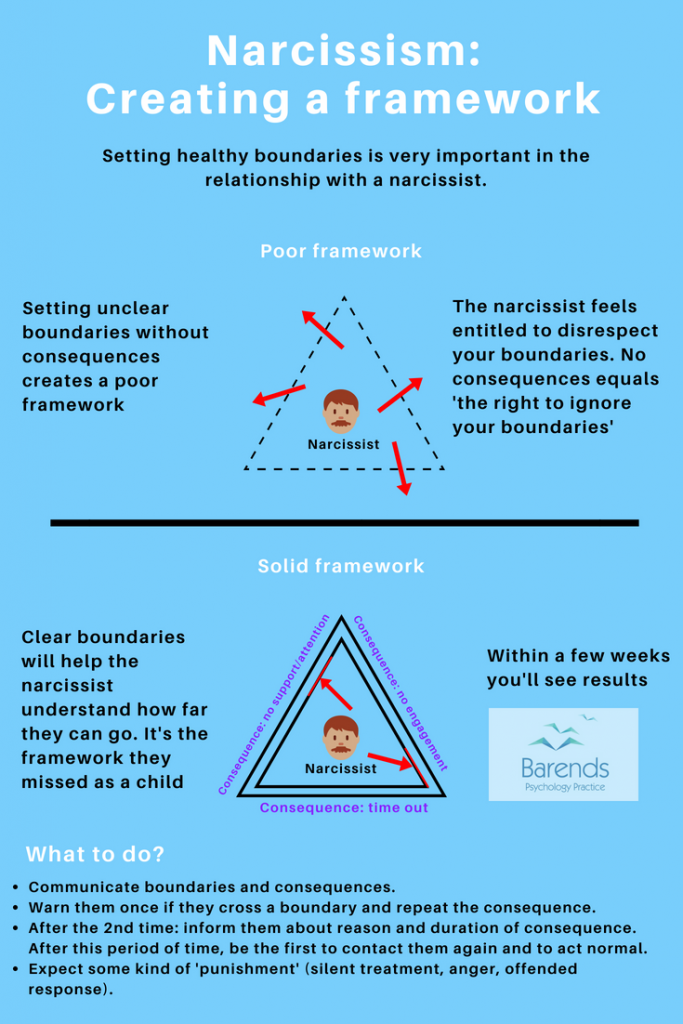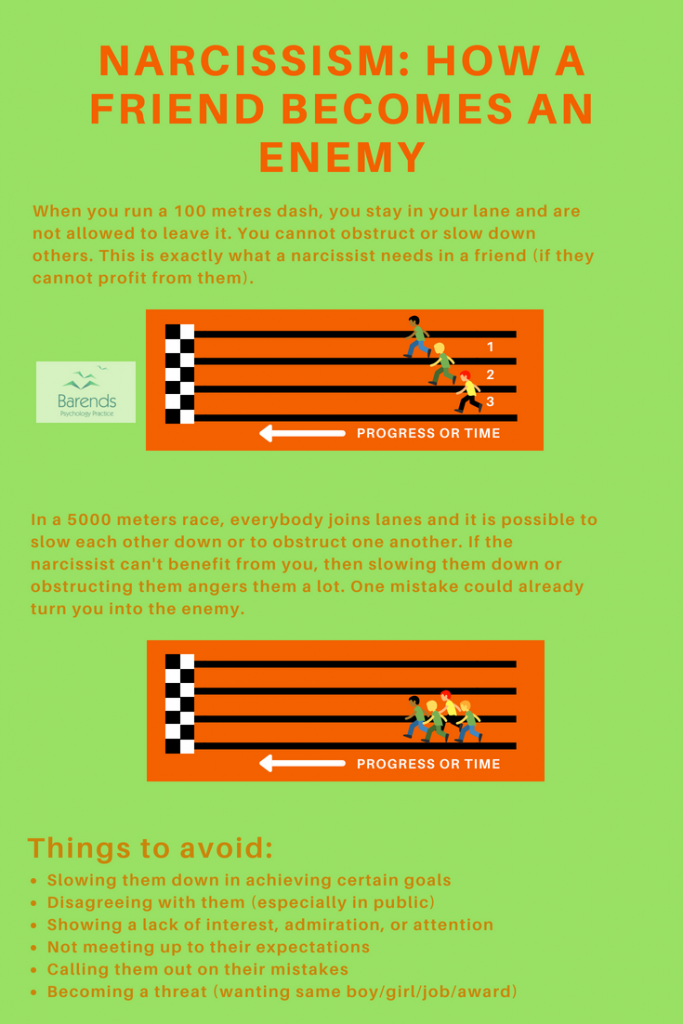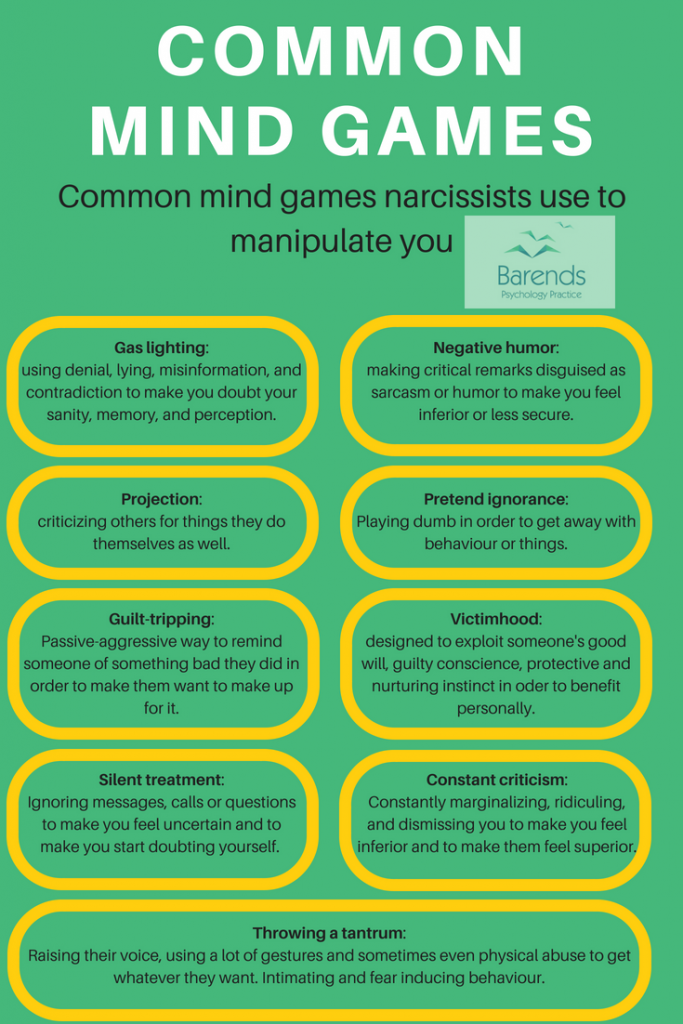Dealing with a narcissist.
Dealing with a narcissist can be very challenging. Narcissists can drain people’s energy, make them feel miserable, and manage to focus all the attention on themselves. For a lot of people, dealing with a narcissist is simply too much and they will start to avoid them. For others, for instance the narcissist’s spouse or relative, this may be impossible. For them, life can be a living nightmare; the narcissist’s impulsive and self-centered behaviour can disrupt families, companies, and even nations. Their constant craving for power and control often leaves people feel helpless, powerless, and defeated.
Fortunately, there is a lot one can do to reduce the power and control someone with narcissistic personality disorder seems to have in conversations, discussions, negotiations, and in relationships. Dealing with a narcissist means gaining control over the situation, being ahead of ‘unexpected’ changes in strategy, and feeling happy again. This page covers tips, tricks, and coping strategies to make living with narcissists (a lot) easier. In case it’s difficult to bring these tips into practice, please contact us.
For more information:
- What is narcissism?
- NPD symptoms.
- NPD test.
- How to deal with a narcissistic parent?
- Having a narcissistic mother-in-law.
- Narcissistic boss.
- Narcissism facts.
- Online treatment for narcissism or guidance for those living with a narcissist.
- Take me to the homepage.
At Barends Psychology Practice, narcissistic personality disorder treatment is offered. Contact us to schedule a first, free of charge, appointment. (Depending on your health insurance, treatment may be reimbursed)
Dealing with a narcissist: the tips and tricks!
Here are the 7 tips and tricks you can use to start dealing with a narcissist in a healthy and productive way.
Identify the narcissist type you are dealing with.

Research shows that there are either two or three narcissism subtypes [2],[3]. The two subtypes are: narcissistic grandiosity and narcissistic vulnerability; the three subtypes are called: the fragile narcissist, the high-functioning/exhibitionistic narcissist, and the grandiose/malignant narcissist. The fragile narcissist and narcissistic vulnerability show a lot of overlap in symptoms and behaviours; narcissistic grandiosity and grandiose/malignant narcissist also show a lot of overlap in symptoms and behaviours.
Where the third one, the high functioning/exhibitionistic narcissist, functions pretty well and uses his narcissistic traits in a positive way [3], the grandiose and fragile narcissist often function bad, create chaos, and eventually damage themselves and people around them.
Unfortunately, narcissistic behaviour of one subtype is not limited to that particular subtype only. In fact, the narcissist behaves different to each individual and its behaviour depends mainly on two factors: are you useful to the narcissist, and are you close to the narcissist. If the narcissist needs you (for a paycheck, a service or for leverage), then it is likely that dealing with a narcissist is easy for you; the narcissist will be kind and generous to you. When the narcissist is not close to you, he or she may come across friendly, charming, and funny. If, however, the narcissist does not need you or has power over you, he will use you or not give you any attention other than superficial attention.
The ones that suffer the most, are the ones that are close to the narcissist, because they witness their tantrums, their impulsiveness, and their tyranny from close by.
Here is a brief overview of the differences in approach/treatment:
If you are a distant friend, relative or a somewhat distant coworker of the narcissist, you may perceive him or her as friendly, social, charming, but also a little bit intimidating (verbally or non verbally). The narcissist may come across very confident and may make (negative) jokes about your achievement in a ‘kind’ way. When you get to know him better you may start to notice that they are persuasive, try to win you for them, and may put others down a little. At this moment, it is likely that the narcissist is identifying your weaknesses.
If you are a good friend, a relative or his partner you will see a different side. The main goal of someone with narcissistic personality disorder is to gain control, power, and attention. For as long as the narcissist thinks you are of use, they will treat you with respect.
If you are the submissive type of person, then it is likely you do not experience a lot of problems, other than the narcissist being dominant. The submissive personality type feeds the narcissist, because they give the narcissist the option to be dominant.
Other personality types, however, will experience more of a struggle for dominance, power, and attention. The same principle applies here: if you give the narcissist what they want, then they are Okay people. However, the moment you oppose or disagree with a narcissist, you can see the anger building up and you can see their behaviour change slowly or even suddenly. The narcissist wants to feel superior to you, tries to exploit you, denies you the pleasure of success (or tries to take credit for it), doesn’t really care about your feelings or needs, and doesn’t listen to you at all.
If you oppose him, he can get aggressive (verbally, non verbally, and physically), remorseless, and revengeful, or he may start playing the victim (crying, accusing you of selfishness; denying or twisting facts; will apply the following techniques: gas-lighting or splitting). And he demands admiration, a lot!
The romantic partners usually have to suffer the most. They are facing a constant power struggle, are being put down a lot, hardly ever receive compliments, and have to deal with their ever changing plans and lack of long term goals. For the romantic partner, dealing with a narcissist is extremely difficult, because they are the only ones who see the real narcissist (and often cannot convince others that their romantic partner is really that horrible to them). The narcissist enjoys to guilt-trip you and to make you feel if you ever want something for yourself. Where they can say they want a divorce a 1000 times, the moment you bring it up even once, they are offended and demand an apology. Narcissists also like to use gas-lighting (see below for an explanation) to make their partner insecure and question their own sanity.
NOTE: romantic partners of narcissists often complain about the fact that the narcissist used to be charming, funny, friendly, romantic, and caring, but that they changed over the course of months/years. It is important to realize that these people got to know the narcissist when they were not close to him or her and thus were treated differently.
(Advertisement. For more information, please scroll down.)
Realize that the narcissist you’re dealing with has issues.
Often, someone with narcissistic personality disorder (NPD) had a difficult childhood; one without enough love, attention, care, and affection, or one with too much attention, praise, love, and no criticism. We are using the word ‘enough’, because each child has different needs. One may need a lot of attention, whereas the other may not need much at all [1]. As a result, narcissism can develop, (1) because a child can develop a sense of entitlement or grandiosity, or (2) because he can develop poor self-esteem, depression, and the need to exploit others [1]. In the first case, the narcissist needs to think of himself as a superior person and needs admiration from others to maintain his self-image [3]. In the second case, the narcissist never received love, affection, and empathy and simply doesn’t know how to show it himself. They do, however, know how to exploit others because they saw (one of) their parents do this all the time [3]. Knowing that the narcissist has issues, may help you to understand what is going on and why they behave the way they do.
In a way, dealing with a narcissist means dealing with someone who has issues himself. The problem is: they don’t know they have issues or will deny it when you confront them. In fact, they may even turn against you or walk away from you. In some cases, for instance at work or in a relationship, this is not really what you want. So now that you know that they have issues themselves what can you do to make dealing with a narcissist easier for you?
Setting healthy boundaries.

If your family is not a safe haven and you do not know when your parents will be nice to you or angry with you for no reason, you start to distrust people in general, and ‘the world becomes an unpredictable place’. For healthy people, the world is predictable: if you behave in a certain way, you know you will have no problems, you will receive love and attention. For narcissists, however, during their childhood, even normal behaviour could result in punishment, depending on their parent’s mood. In other words, the narcissist had little to no framework (set of rules, norms, values, and boundaries) to guide him through life.
It is the poor framework that leaves them clueless in more meaningful relationships and, in their eyes, justifies many of their behaviours. Dealing with a narcissist can be physically, emotionally, and mentally exhausting, because they can suddenly turn against you, change their plans completely, and tend to create chaos. They are really good at playing tiring mind games without you being aware of it. They play these mind games because they want something from you. Whether it is a favor or simply control, attention or power, a narcissist always wants to have the better deal.
Therefore, it is very important to set healthy boundaries, to create a clear framework, and to stick to them. A narcissist needs boundaries to know what he or she can and cannot do. At the same time, you need consequences as well when they cross these boundaries. Without clear boundaries (and consequences), the narcissist assumes that they can do whatever they want. Depending on the subtype, the narcissist may respond with anger (malignant subtype) or by playing the victim (fragile) when you set clear boundaries. Be aware that this is plain manipulation. By becoming angry, they try to intimidate you and want you to adjust these boundaries. After all, your boundaries are not in their favor. The narcissists who play the victim try to manipulate you by making you feel guilty and consequently adjust your boundaries. In both cases the result is often the same: people adjust their boundaries. If, however, one does not give in, the narcissist will feel more anger/like a victim and most likely respond very offended, but they will respect your boundaries. Why? Because the consequences most likely mean: less contact or less control. A narcissist always wants to have control, power, and attention. By using this against them, they will always obey, which makes dealing with a narcissist easier. A very successful exercise we give our clients is to set a healthy contact boundary. The person is allowed to only contact our client so many times a day or week. If the narcissist crosses this boundary, the consequence is 2 weeks of radio silence and every time the narcissist tries to be in touch during these two weeks, the timer will be reset. Within a month the narcissist obeys. After a while they will test this boundary again, just like toddlers do, and it is up to you to be consequent.
Realize that they cannot offer you everything you need.

Despite the fact that most narcissists, especially in the beginning, are charming, kind, and funny, they have difficulty understanding what other people’s needs are. Even if they realize someone needs them for emotional or physical support, they usually see this in terms of: “How can I benefit from this sooner or later?”. If you expect someone with a narcissistic personality disorder to give you emotional support, to help you out with something, or to do you a (big) favor, then expect to get disappointed or to be presented with the bill afterwards. Dealing with a narcissist can be exhausting if you expect too much. Instead, ask yourself what you need of this person and see if this is what the narcissist can offer you. If they can’t offer you what you need, then stop asking for it and find someone else who can be there for you. Be aware: the narcissist can be very interested in your personal life and may ask a lot of questions, but they are just gathering information to use against you or someone else. Genuine interest from the narcissist is extremely rare, if it exists at all.
For the romantic partner of the narcissist, getting your needs fulfilled may be very frustrating: at times, the narcissist can be very kind, understanding, and sweet (usually after a fight), but they change within a few days and may use your need for emotional support against you. Exploiting someone’s weaknesses is what they do best, which is why it is wise to try to hide your weaknesses and needs. It will disarm the narcissist a little bit.
Realizing that the narcissist cannot give you want you a looking for in someone, may change the interaction between the both of you. This may be tricky, as the narcissist may start to consider you their enemy. In the image above/on the right, we illustrated how a friend can turn into an enemy in the eyes of the narcissist. Dealing with a narcissist in terms of staying friends can be very difficult and energy consuming. A narcissist can easily get disappointed in you(r efforts) and replace you for someone else.
(Advertisement. For more information on dealing with a narcissist, continue reading.)
Stay away from mind games.

Dealing with a narcissist becomes a lot easier when you stay away from their mind games. Why? Because you’ll end up doing something you don’t want to or saying things you didn’t want to. Another reason is that the narcissist simply enjoys mind games, because that is when they are in control. Being in control is important for them. It gives them the feeling of power and of being better than you. The moment they are about to lose the discussion, they easily change tactics (like changing the subject or playing the victim) to gain control over the discussion again. If, somehow, they can’t get the upper-hand in the discussion don’t be surprised if they go berserk (shouting, screaming, throwing objects, cursing, and so on). Why do they go berserk? Probably because they can’t deal with the frustration of not being in control. You probably don’t want to have such a scene. So what can you do about it? The best thing is to recognize the game they are playing and to calling them out on it. They will most likely deny it and try to accuse you of something, but at the same time, this exposure makes them feel vulnerable. Vulnerability is something they absolutely do not like, and it is very likely that they will stop using this game. Another effective strategy is to ask for some time to think about the topic or question or accusation. This time-out will make their game less effective and gives you time to organize your thoughts. In any case, do not give them what they want or they will always go berserk if they do not get what they want. Here are a few examples of mind games narcissists like to play and some tips of how to deal with them:
- Changing the subject – The moment you are about to win the argument or have the upper-hand in the discussion the narcissist will change the subject in such a way that they have the upper-hand again and that you have to defend yourself (again). A good way to deal with this mind game is to mention it: ˝Donald, I understand you want to talk about that topic as well, but we are not finished with our current topic yet. We can discuss your new topic after we finished this one˝. In this way you let them know you hear them and you validate their point. At the same time you go back to the initial topic. Keep repeating this.
- Blaming you – By blaming you they are in control, they have the upper-hand. This approach makes you feel like defending yourself all the time and that makes you vulnerable. In relationships this is a powerful mind game. It’s easy to start blaming your partner as well, but it’s not constructive at all. A better way to deal with this mind game is to focus on solving the problem. If your partner blames you for something immediately focus on problem solving strategies. This way you don’t give the narcissist the time to continue their blame game. You also show you are not that vulnerable as the narcissist would like you to be. NOTE: some narcissists become even more angry when you admit your mistakes or wrongdoings, because it makes them feel entitled to punish you. If this is the case, then it is very important to not admit to your failures or mistakes.
- Projection – Dealing with a narcissist can be really frustrating because of they can be hypocrites sometimes. They can blame or criticize you for things they do themselves as well. The reason they use projection is to shift the attention away from them. And they succeed in it when they provoke a reaction. The moment you start defending yourself, you give them what they want: (1) they are in control again, and (2) the focus is on you! So what can you do about this? Some people say you have to walk away. In some situations this is a wise thing to do. In other situations, talk about ‘we’ when mentioning that type of behaviour (and start recording when they do the same to you). It will either shift the attention to them or make it less of a problem. Also, propose a solution to the problematic behaviour. If they come up with a solution, you can use this whenever they show that type of behaviour.
- Playing the victim – Even though they think they are perfect, they like to play the victim from time to time as well. They may do this because they want to get the upper-hand in the situation or because they need some attention.
They may play the victim when you are upset about what they did, when you are angry with them or when they don’t get what they want. For instance, when you are angry because they didn’t keep their promise, they may “be upset” about your response and try to make you feel guilty. Why do they do that? This way the attention shifts from their bad behaviour to their ‘I am a victim’ behaviour. The attention they get is not negative but positive, because you feel guilty. Also, they will regain control over the situation again. The best way to respond in this situation is to ignore their game and focus on what the narcissist did before. They will throw a more dramatic scene if you ignore them, but they will stop this if you set healthy boundaries.
Sometimes, however, they simply need some more attention. Common moments where the narcissist plays the victim is when someone else is in the spotlights or the day after they behaved really well (social and kind). If this is the case, then it is easier to give them just that little bit of extra attention and they will clear up almost instantly. - Gas-lighting – Dealing with a narcissist is tricky because they use the gas-lighting technique a lot. The gas-lighting technique means that the narcissist withholds information from you and replaces it with false information. They use denial, misdirection, contradiction and lying to make you doubt your own memory, perception or sanity. This way they are in control over the situation, and it’s easier for them to “persuade” you into taking their view/opinion. And that’s what they want. What can you do about this? Do not base your opinion on their information only. Try to find out what really happened and keep in mind that the narcissist may be playing games. Stick to your own memory and, if needed, write it down.
- Interruption – By interrupting you or by talking louder and louder they try to gain control over the situation again. Allowing them to interrupt you or to “shout” at you means that you are on the losing end of the discussion. It’s more difficult for you to make your point when you get interrupted a lot or when the other is shouting at you. The easiest thing to do is to tell them that they can talk after you’ve finished making your point. Another good thing is to tell them that you are not impressed by their shouting and that they should talk like all adults do.
- Silent treatment – The avoidance of certain topics and keeping the upper-hand in the relationship are two important goals for the narcissist. The silent treatment is a very effective way to achieve this. On top of that this treatment makes you feel guilty and makes you want to come to the narcissist to stop this silent treatment. In short: the sooner you get it over with the better. The approach may be tricky though: because they will just play the victim again. You can acknowledge their feelings briefly and then immediately continue the initial discussion. Don’t take too much time acknowledging their feelings because it’s what they want.
- Using long and complex sentences – Most narcissists use long and complex sentences to answer questions or during a discussion. They like to use difficult words as well. There are several reasons why they do this, (1) to illustrate how intelligent they are, (2) to confuse you, (3) to get way off topic, and (4) to make you agree with whatever they are saying so they can use that against you again. It is important to cut the narcissist short and ask them to give you short answers.
Don’t try to win the narcissist for you.
Winning the narcissist for you isn’t a very realistic goal given the fact that they only care about themselves. So the moment a narcissist likes you a lot it’s probably because you feed their ego, because you make them feel very important, and because they can exploit you (emotionally, mentally, and physically). The moment they find a better person for their needs or the moment they can’t use you anymore, they will simply drop you like a rock. It’s a lot easier to keep the narcissist on a safe distance.
When it comes to business or responsibilities, please think twice and never decide on the spot. Ask for some time to think about all the pros and cons, and do not let them pressure you. Any form of pressure from them is a red flag and almost begs for even more delay from your side. Also, do not accept their nice gestures (gifts or nice gestures), because they will use it as leverage against you. Sooner or later, they will come to you and remind you of how they gave you something, and that it is time for you to return the favor. https://bongo.gg This favor is always bigger than what they gave you in the first place, and often is more risky or involves responsibilities or is part of more involvement in their lives (and means getting caught in their web).
Avoid challenging the narcissist’s desires and wishes.
By challenging the narcissist’s desires and wishes you may become their enemy, as mentioned before. Most narcissist enjoys seeing someone suffer, humiliating someone, and being in control all the time. Imagine what happens if you become their enemy? The narcissist will do everything to make you suffer. Everything they can use against you they Will use against you. Try to avoid challenging the narcissist’s desires and wishes, try to stay out of it. Dealing with a narcissist sometimes means taking distance rather than engaging in contact.
Dealing with a narcissist – Literature
- [1] The handbook of Narcissism and Narcissistic Personality Disorder. Theoretical Approaches, Empirical Findings, and Treatment. W. Keith Cambell & Joshua D. Miller, 2011.
- [2] Pincus, A. L., Ansell, E. B., Pimentel, C. A., Cain, N. M., Wright, A. G., & Levy, K. N. (2009). Initial construction and validation of the Pathological Narcissism Inventory. Psychological assessment, 21, 365.
- [3] Russ, E., Shedler, J., Bradley, R., & Westen, D. (2008). Refining the construct of narcissistic personality disorder: Diagnostic criteria and subtypes. American Journal of Psychiatry, 165, 1473-1481.

